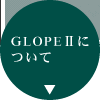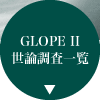予定表 -詳細情報-
| 件名 | LS Willy Jou氏 |
| 開始日時 | 2011年 7月 19日 (火曜日) 12時15分 (GMT+09:00) |
| 終了日時 | 2011年 7月 19日 (火曜日) 12時50分 (GMT+09:00) |
| 場所 | 1号館401教室 |
| 詳細 | GLOPE II Lunch Time Seminar 【報告者】:Willy Jou氏(早稲田大学高等研究所助教) 【報告タイトル】:Citizens’ Voice in Electoral System Choice 【日時】:7月19日(火)12:15〜12:50 【場所】:1号館401教室 *The talk will be given in English. 【概要】 Causes of electoral reform have attracted increasing scholarly attention in recent years. While most works analyze electoral system change as an elite-centered process, this study posits that ordinary citizens also have an important role to play, and examines factors that influence their attitudes toward different electoral designs. Using longitudinal survey data from New Zealand covering a span of more than one decade, I test the hypotheses that partisanship and ideology exert a significant impact on voters’ choice between plurality and proportional representation systems. I also investigate the effect of electoral winner/loser status, political efficacy, system support, and authoritarian values on the likelihood of favoring alternative rules of the game. Finally, I discuss the relevance of results from this study for other countries currently considering electoral reform. |
| カテゴリー | 政治経済学基礎セミナー・ランチタイムセミナー |








